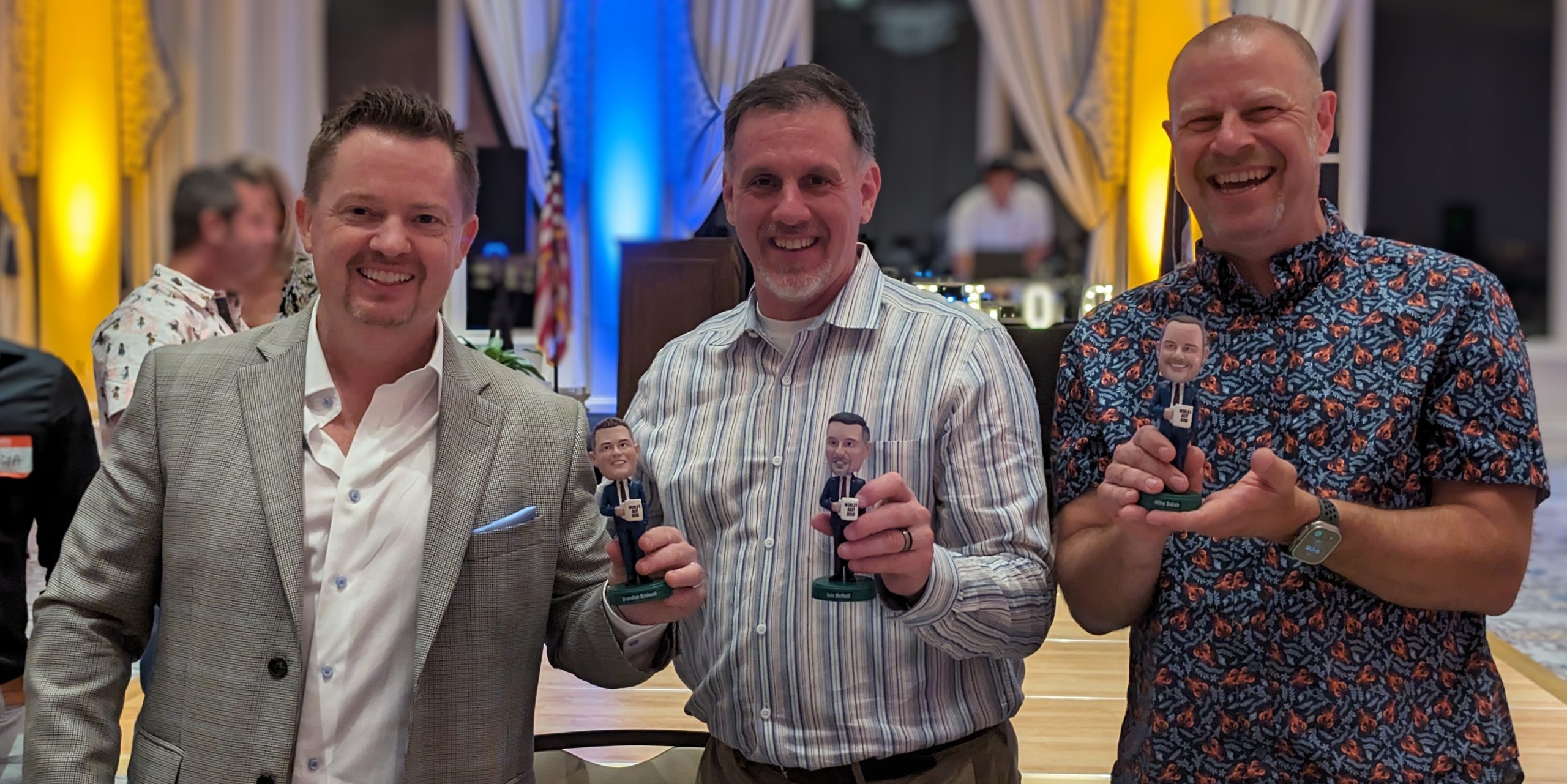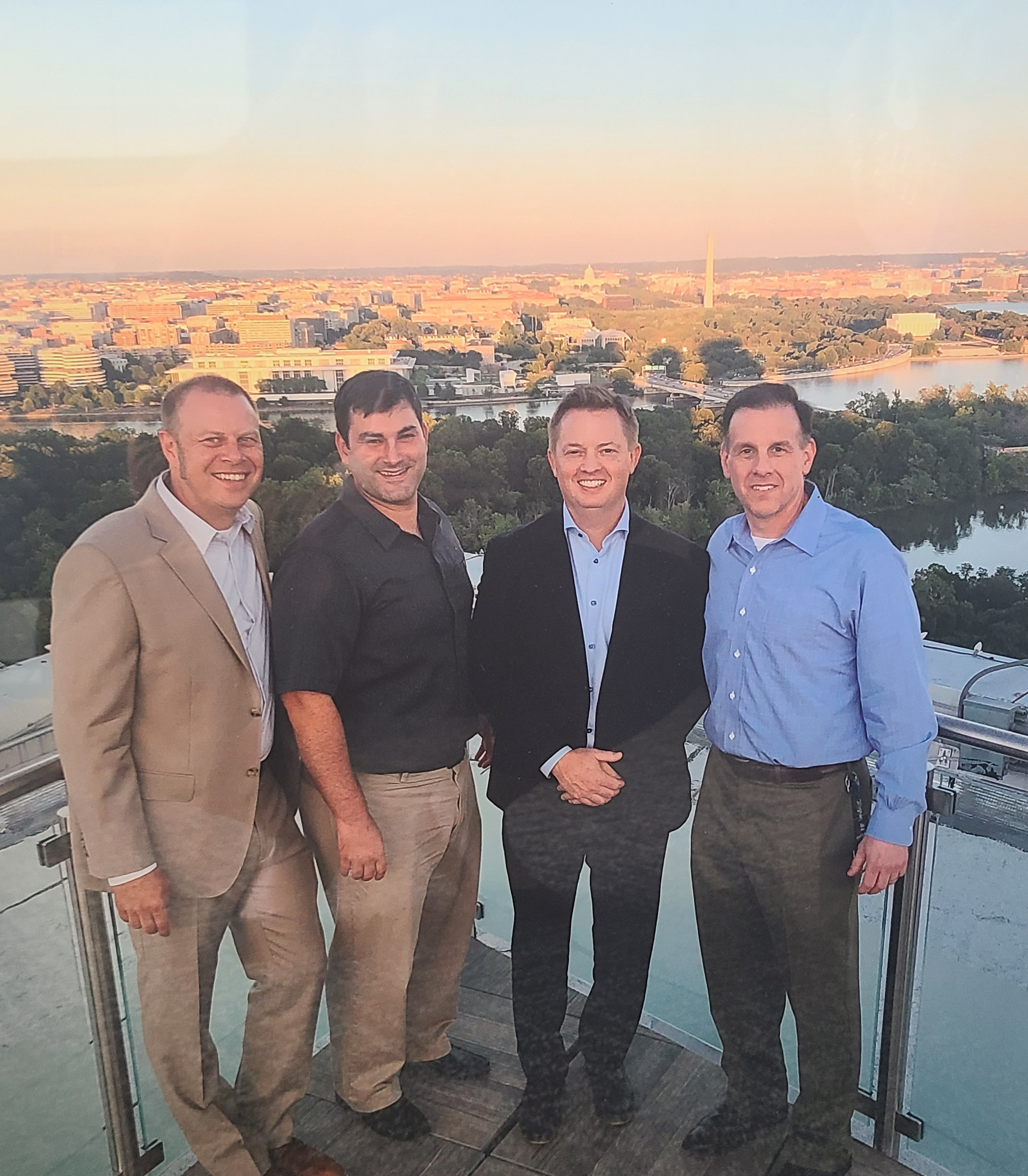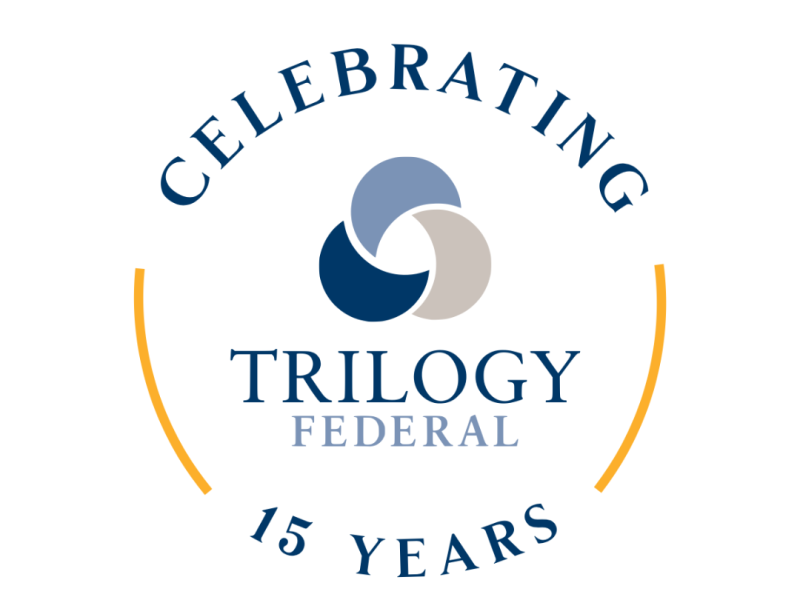This Spring Trilogy celebrated its fifteenth anniversary as an organization. A milestone we could not have achieved without the hard work and dedication of our team and, most importantly, supportive leadership. We sat down with Trilogy’s fearless leaders – our executive leadership team of Eric McNutt, Mike Sotak, and Brandon Bridwell – to talk about the founding of the company, how we’ve grown, and where we’re headed.

What were your emotions like in your first week of operations?
Eric: I think we were excited, but obviously with a healthy bit of anxiety. We were able to do some 1099 work for the VA while we were setting up Trilogy, which lessened the immediate impact of “holy ****, this is for real!”
Mike: I felt fortunate and relieved that we were officially there and that all three of us had paid work right out of the gate. I thought it was pretty remarkable.
Were there any cultural elements from your previous workplaces that you wanted to ensure you instilled here at Trilogy?
Eric: We had seen the harsh aspects of running a business and wanted to start a company where we really valued people and their work enjoyment more than simply making profits. Honestly, we wanted to “walk the walk.” Many companies talk about focusing on continuous training and career development but don’t have real mechanisms in place to do that consistently. Through the career model, Trilogy University, tuition reimbursement and communities of practice we feel like we have built that here at Trilogy.
Brandon: Part of what we value from a cultural perspective is Trilogy’s collaborative approach to tackling challenging business problems and winning new work. In a prior life, when I worked 12+ years at a couple of the “big 4” consulting companies, I found those firms often created a “zero-sum game” environment where managers often refused to share resources and opportunities because of perceived internal competition for rewards or advancement. At Trilogy, we’ve worked tirelessly to create the opposite environment, where we take pride in recognizing and rewarding everyone who contributes, and part of every staff member’s evaluation is how well they support other Trilogy team members.
What was your biggest concern in taking on this venture, and how did you work to mitigate that concern?
Mike: I always think about the people who joined us early on and put their careers in our hands. They’re the ones taking the real risks, so that felt like a weighty responsibility. The mitigation for that was really just focused around continuing to grow and foster the relationships that allowed us to start in the first place.
Brandon: My biggest driver then, as it is now, is making sure we had enough new work to keep all our great staff employed on projects and to provide a combination of stability and professional growth. Maintaining our collaborative, supportive culture as we grow is also at the top of the list, a feat made slightly more challenging in today’s remote work environment.
From your perspective, what was the number one turning point for Trilogy’s growth and success?
Eric: I think it all started when we won our first IDIQ (FPIAR) contract in 2013. It was our first prime contract win and it allowed us to hire a few more people.
Brandon: Trilogy winning the ADVISOR IDIQ provided an amazing basis for pursuing and winning more work, including our first healthcare-related task order. It provided a great opportunity to hire a lot of folks that have subsequently turned into leaders here at Trilogy and provided us with the platform we then needed to go after the IHT IDIQ, which we won in April 2020.
Mike: When we won the FMS support work, we were able to hire a community of people who can support a mainframe. The federal financial management system (written in the Cobol programming language) started with a 5-to-6-person project team with a unique set of skills. Then we sort of “cornered the market” on the people who knew everything about VA’s financial management for the past 15 years. That was a big one for us – it opened a door for us and VA financial management to continue to grow.
What is the most important factor for Trilogy to continue to grow and evolve?
Eric: We’ve put together organizational and leadership structures that will support the growth of an organization, but on the flip side of that, we still want to maintain the discipline of going after the kinds of work that we like and that we think we’re good at. We don’t want to fall into the trap of chasing dollars in contracts which may not really add value to the company or our porfolio.
Mike: Fostering the relationships you have with your customers and growing them wherever you can is even more important now than it was 15 years ago.
Brandon: Our approach involves a few parallel paths: 1) continue to look for opportunities to prime, leveraging our amazing past performance; 2) leverage our teaming partners to find more opportunities to be a subcontractor; and 3) leverage our new Joint Venture, Tribility.
Is there anything else you would love folks to know?
Eric: Running a company is like having a baby. Millions of people have done it before you, but until you do it for yourself, you really have no idea what you’re doing. A lot of people talk about 3-, 5-, 10-year strategic plans, and while that’s certainly part of what we did, you ultimately need to just put one foot in front of the other, get through the day-to-day, and continually try to move forward.
**To all our clients, teaming partners and mentors, we are so grateful to be on this journey with you. And to our fabulous leaders Matthew Magazu, Mike Sotak, Eric McNutt, and Brandon Bridwell, none of this would have been possible without you. Thank you for keeping the Trilogy dream alive, well, and thriving for all these years.
Team Trilogy

